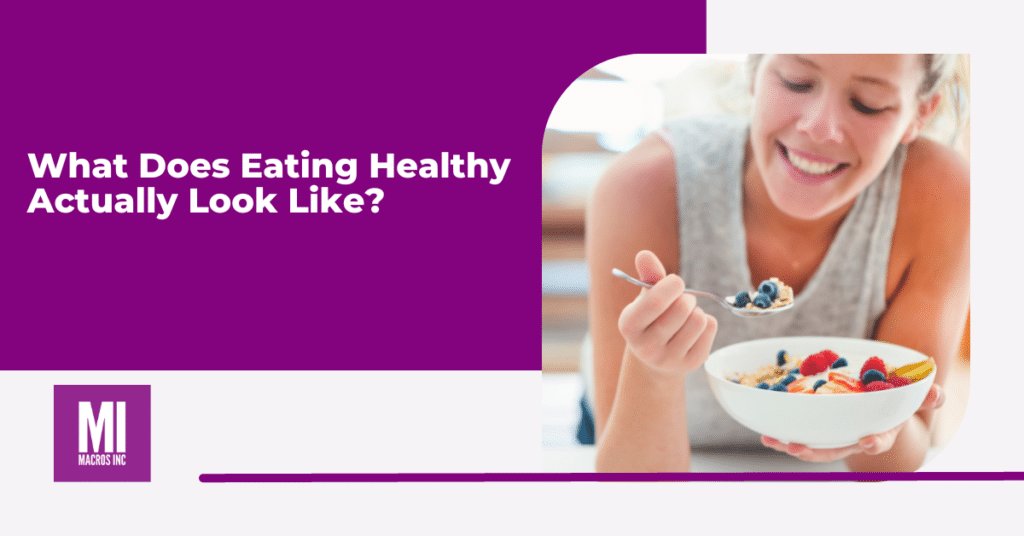“Eating healthy” is a phrase frequently thrown around, but its meaning can be somewhat elusive. To truly understand what it means to eat healthily, we need to explore this concept in more depth. Let’s dissect it and uncover the key principles that can guide us towards making healthier dietary choices.
Jump to a Topic
Defining “Eating Healthy”
Eating healthy isn’t a one-size-fits-all concept. It’s about making informed choices that support your well-being. Here are some essential aspects to consider:
1. Managing Calories for Optimal Health
At the core of healthy eating lies the management of calories. Consuming more calories than your body needs can have adverse effects on your metabolic health and increase the risk of heart disease. To start, it’s crucial to understand and regulate your energy intake.
If you are eating 500-1000 calories a day more than you need and in a state of calorie balance, the minute effects of eating perfect foods really gets negated.

2. Prioritizing Unprocessed Foods
Whole, unprocessed foods should take center stage in your diet. These foods offer several advantages:
By focusing on structured meals rather than snacks, you can develop healthier eating patterns.
They generally tend to have higher energy density.
They tend to be more palatable, leading to greater calorie intake.
They tend to be lower in nutrient density.
They tend to be way more convenient.
They are often consumed in more of a “snacking” setting than a true eating setting.
They often have very few health promoting nutrients.
3. Incorporating Plant-Based Foods
While becoming a vegetarian isn’t necessary, including more plant-based foods in your diet can significantly benefit your health. Plants offer:
Fiber, which aids digestion and helps you feel full.
A wide array of vitamins, minerals, and phytonutrients.
A balanced diet should feature fruits, vegetables, and starches in various colors and forms.
4. Moderating Alcohol Consumption
The data indicates that reducing alcohol consumption can lead to better health outcomes. It can lower calorie intake, improve lipid profiles, and decrease the risk of various diseases. While you don’t have to eliminate alcohol completely, moderation is key.
5. Avoiding Processed Meats
Processed meats, such as pepperoni and sausages, have consistently been linked to an increased risk of diseases. While researchers are still unraveling the exact reasons behind this connection, it’s advisable to limit your consumption of these products.
6. Staying Hydrated for Overall Health
Hydration is a vital aspect of eating healthily, often overlooked. Water is essential for various bodily functions, including digestion, metabolism, and temperature regulation. Aim to drink an adequate amount of water throughout the day, as proper hydration can:
Support optimal digestion and nutrient absorption. Help control appetite, as thirst is sometimes mistaken for hunger. Maintain the balance of bodily fluids, ensuring your body functions efficienctly.
By incorporating proper hydration into your daily routine, you contribute to your overall health and well-being.
Final Thoughts
Eating healthily is a personalized journey, but it’s rooted in fundamental principles that promote overall well-being. By managing your calorie intake, prioritizing unprocessed foods, incorporating plant-based options, moderating alcohol consumption, avoiding processed meats, and staying hydrated, you can take meaningful steps towards a healthier lifestyle.
Remember that small, sustainable changes can have a significant impact on your long-term health and well-being.
Conclusion
Try our nutrition coaching, for free!
Be the next success story. Over 30,000 have trusted Macros Inc to transform their health.
Simply fill out the form below to start your 14-day risk-free journey. Let's achieve your goals together!


